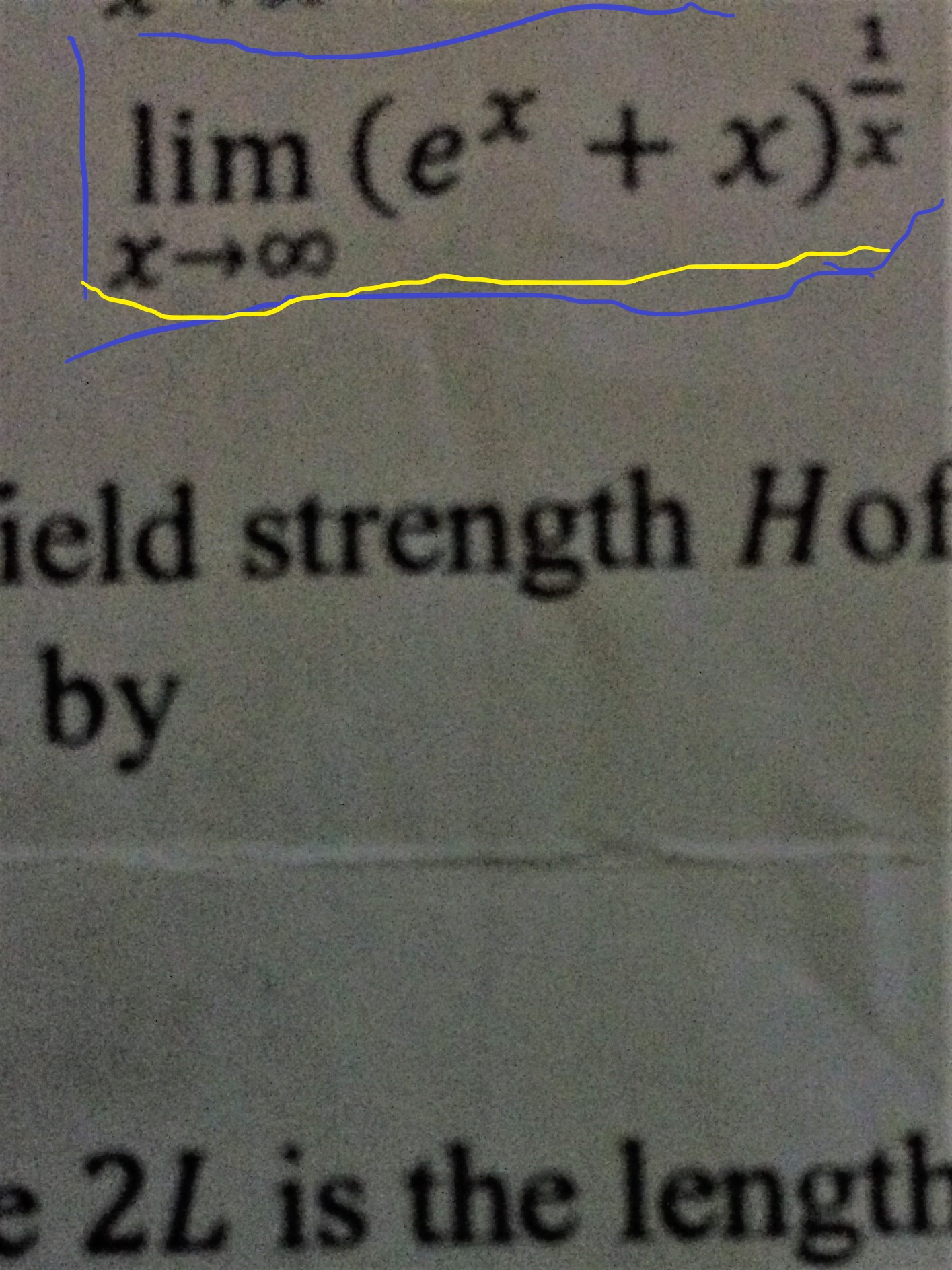Hello maths friedns! (Q-F) hope everyone is fine ,can someone please help me solve this question?.I have tried it multiple times but always get stuck.Its question based on L hopital rule and i have provided answer as well.Would really appreciate the help.

1 Answer
Explanation:
We begin with:
We can simplify the power-to-a-power by using a logarithm.
We use another property of logarithms, where a power inside the argument can be brought out as a multiplicative factor.
Now this is of the form
Our
The limit of
Using L'Hospital's rule:
Still no good. We use L'Hospital's rule a second time:
So the limit of
Now we remember the limit chain rule we discussed before:
So we can rewrite our original limit as:
Hence:

